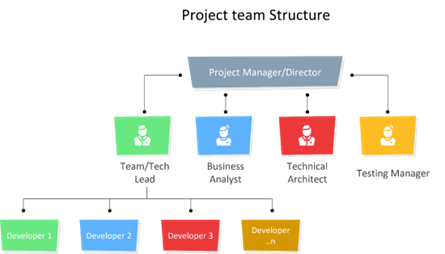In the contemporary world of business, it is crucial to be aware of the responsibilities of the Business Analyst and the Project Manager to enhance project outcomes. Even though both are generally involved in day-to-day projects, the job descriptions, needed competencies, and career paths of a Project Manager and a Business Analyst differ significantly. In this article, you will find out what Business Analysts and Project Managers are, what jobs they do, what abilities they should have, and what kind of work they can offer you in the future, particularly in the context of business analyst vs project manager roles.
Overview
Based on the differences between Business Analyst and Project Manager given above, one can conclude that the main distinction is in the concentration of the occupation and the obligations of the person in the position. The BA is more focused on business requirements, determining what is best for the business, while the PM controls the project plans, implementation, and completion. This is the kind of information we will be discussing in this blog, paying attention to the differences between these two roles in detail, particularly in the context of business analyst vs project manager.
Who is a Business Analyst?
A Business Analyst is an expert who frequently performs the role of an intermediary between the company representatives and the IT department. Their main purpose is to assess the purpose and necessity of a business and find a way to present it in terms of technology. They have a crucial role to fulfill in the business to ensure that the end product being delivered to the business is essential. In the context of business analyst vs project manager and business analyst vs project management, the Business Analyst focuses more on defining needs and recommending solutions.

Useful Links – ECBA Certification Course | CBAP Certification Course | CCBA Certification Course | Essential Business Analyst Skills
Role of a Business Analyst:
- Requirement Gathering: Determining and capturing required features in an organization entails consulting with stakeholders to identify their expectations and translating those expectations into technical specifications. Interviews, surveys, workshops, and observations are some of the usual methods employed by Business Analysts to gather requirements. In the context of business analyst vs project manager, while the Business Analyst focuses on defining requirements, the Project Manager ensures those requirements are delivered on time and within scope.
- Stakeholder Analysis: Stakeholder management involves the parties to find out their concerns and demands. This involves the recognition of stakeholders, their power, their interest in the project, their perception of the project and or program, and how best to meet these expectations.
- Solution Assessment: Evaluating various strategies for solving business issues is a key responsibility of Business Analysts. Their role involves assessing the effectiveness and efficiency of different solutions and identifying which approach is the most optimal to implement. In the context of business analyst vs project manager, the Business Analyst focuses on solution evaluation and recommendation, whereas the Project Manager is responsible for implementing the chosen solution and managing the project’s progress.
- Documentation: Documenting details like business requirements documentation or functional requirements documentation is crucial to ensuring that all stakeholders have clear project expectations and goals. Both the business analyst and project manager play a role in this process, with the Business Analyst focusing on capturing and defining the requirements, while the Project Manager ensures these requirements are met throughout the project lifecycle.
- Testing and Validation: Ensuring that the implemented solution meets the specified requirements is a key responsibility of Business Analysts. They often collaborate with the QA team to develop test cases and validate that the solution aligns with business needs. Both the business analyst and project manager are involved in this process, with the Business Analyst ensuring the solution fulfills business requirements, while the Project Manager oversees the successful delivery of the project.
By honing these core Business Analyst skills and earning certifications like ECBA, CCBA, and CBAP, you can become an even more effective Business Analyst and bridge the gap between business and technology. Understanding the distinctions in roles, especially in the business analyst vs project manager context, will further enhance your ability to contribute to project success.
Who is a Project Manager?
A Project Manager is responsible for the overall management of a project, from initiation to closure. Their primary role is to ensure that the project is completed on time, within budget, and to the desired quality standards. They coordinate the efforts of the team, manage resources, and communicate with stakeholders, which is often contrasted with the role of a Business Analyst in the context of ‘business analyst vs project manager’ discussions.

Role of a Project Manager:
- Project Planning: Defining project scope, objectives, and deliverables. This includes creating a detailed project plan that outlines the project timeline, milestones, and tasks.
- Resource Management: Allocating resources and managing the project team is a primary responsibility of Project Managers. They ensure that the right people are assigned to the right tasks and that resources are used efficiently. Both the business analyst and project manager contribute to project success, with the Business Analyst focusing on gathering and defining requirements, while the Project Manager ensures that resources are properly allocated to meet those requirements and drive the project to completion.
- Risk Management: Identifying and mitigating project risks. Project Managers develop risk management plans to identify potential risks, assess their impact, and implement strategies to mitigate them.
- Budget Management: Managing the project budget and ensuring cost control. This includes tracking project expenses, forecasting costs, and ensuring that the project stays within budget.
- Stakeholder Communication: Keeping stakeholders informed about project progress and issues is a critical responsibility of Project Managers. They use various communication channels to update stakeholders and ensure that everyone is aligned on the project goals and status. The collaboration between the business analyst and project manager is essential in this regard; while the Project Manager communicates overall project updates, the Business Analyst provides detailed insights into requirements and stakeholder needs, ensuring comprehensive understanding across the team.
Project Manager Vs Business Analyst – Comparison
| Aspect | Business Analyst | Project Manager |
| Focus | Identifying business needs and finding solutions to business problems. | Planning, executing, and closing projects. |
| Key Responsibilities | Requirement gathering, stakeholder analysis, solution assessment, documentation, testing, and validation. | Project planning, resource management, risk management, budget management, and stakeholder communication. |
| Skills Required | Analytical thinking, communication, technical knowledge, problem-solving, documentation. | Leadership, time management, risk management, communication, budgeting. |
| Type of Role | Individual tasks related to requirement gathering and analysis. | Managing a team to achieve project goals. |
| Working Style | Often works independently or with a small group of stakeholders. | Responsible for team coordination and resource management. |
| Salary (India) | ₹500,000 – ₹1,200,000 per annum. | ₹800,000 – ₹2,000,000 per annum. |
| Salary (US) | $60,000 – $110,000 per annum. | $75,000 – $130,000 per annum. |
| Salary (UK) | £35,000 – £65,000 per annum. | £45,000 – £85,000 per annum. |
| Career Growth | Senior Business Analyst, Product Manager, IT Consultant. | Senior Project Manager, Program Manager, Portfolio Manager. |
| Specialization | Opportunities to specialize in specific industries or domains. | Opportunities to manage larger and more complex projects. |
Useful Links – ECBA Certification Course | CBAP Certification Course | CCBA Certification Course | Essential Business Analyst Skills
Conclusion
In conclusion, both Business Analysts and Project Managers play essential roles in the success of projects. While a Business Analyst focuses on identifying and solving business problems, a Project Manager is responsible for overseeing the project’s execution. Understanding the key differences between these roles, particularly in the business analyst vs project manager context, can help organizations allocate resources effectively and ensure project success. Understanding the distinctions between roles, especially in the business analyst vs project manager framework, further emphasizes the importance of developing these skills for career advancement.



